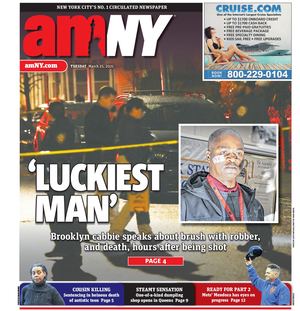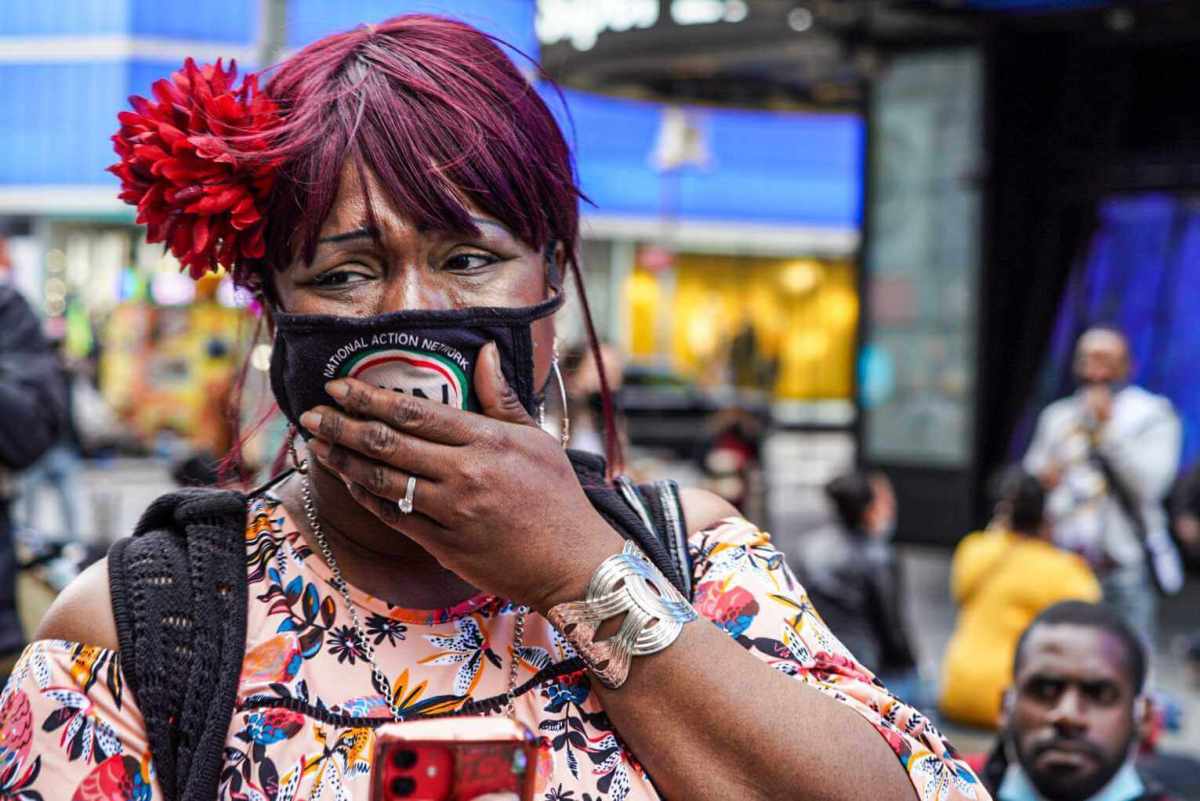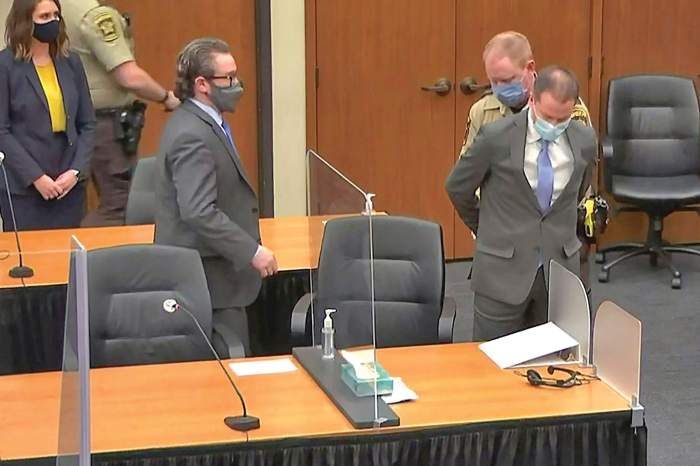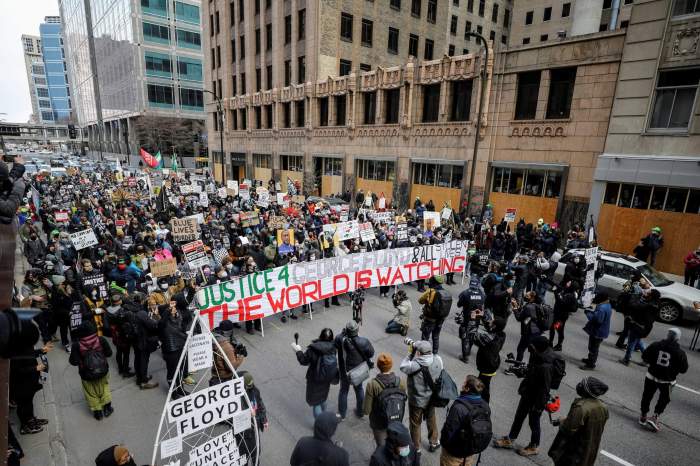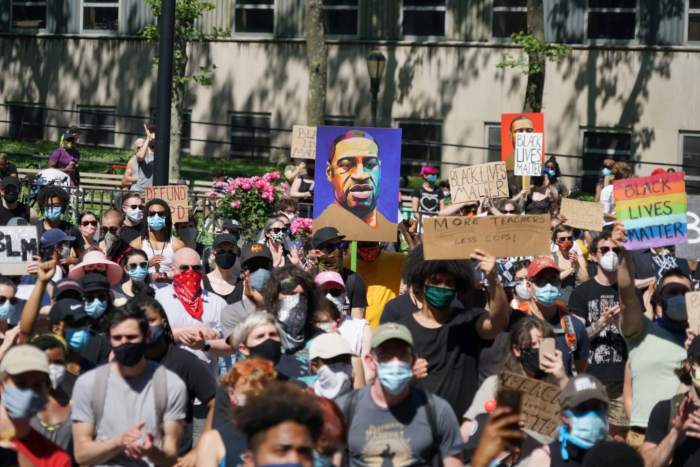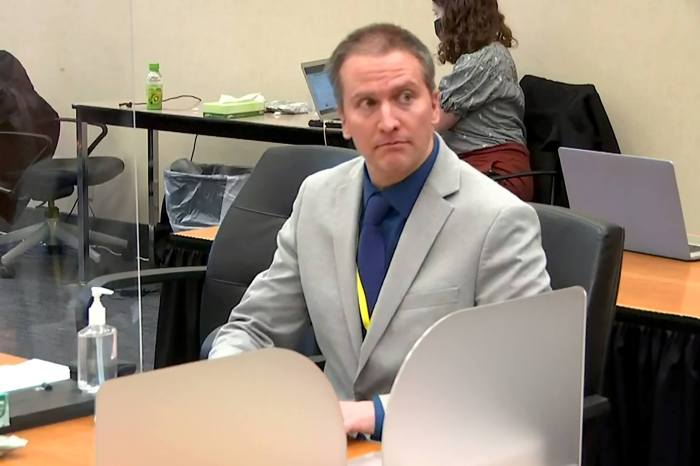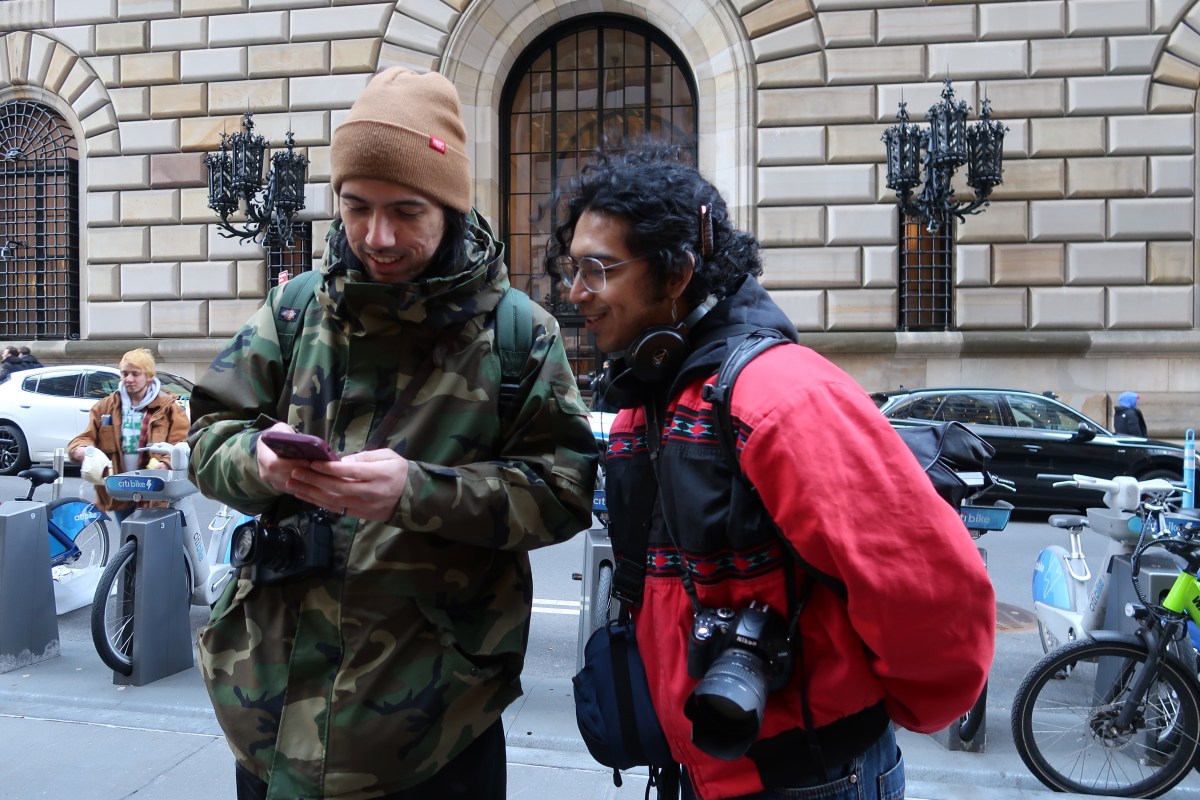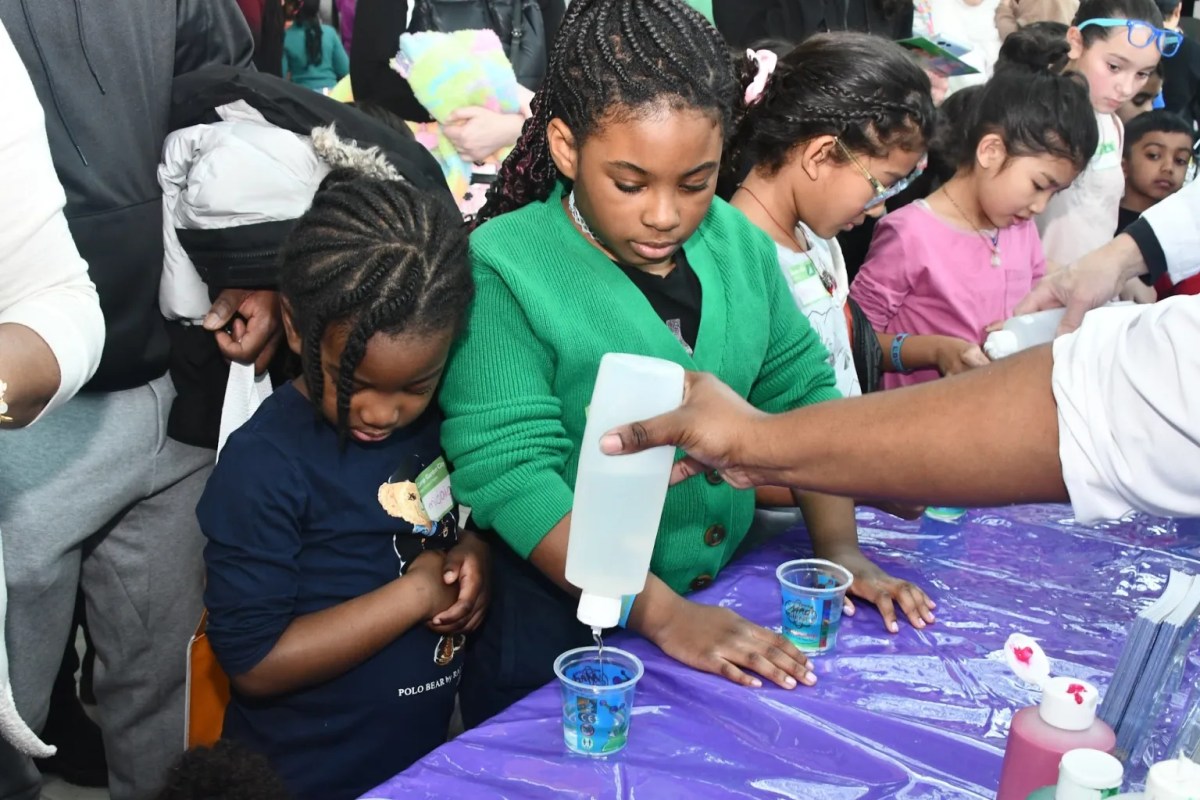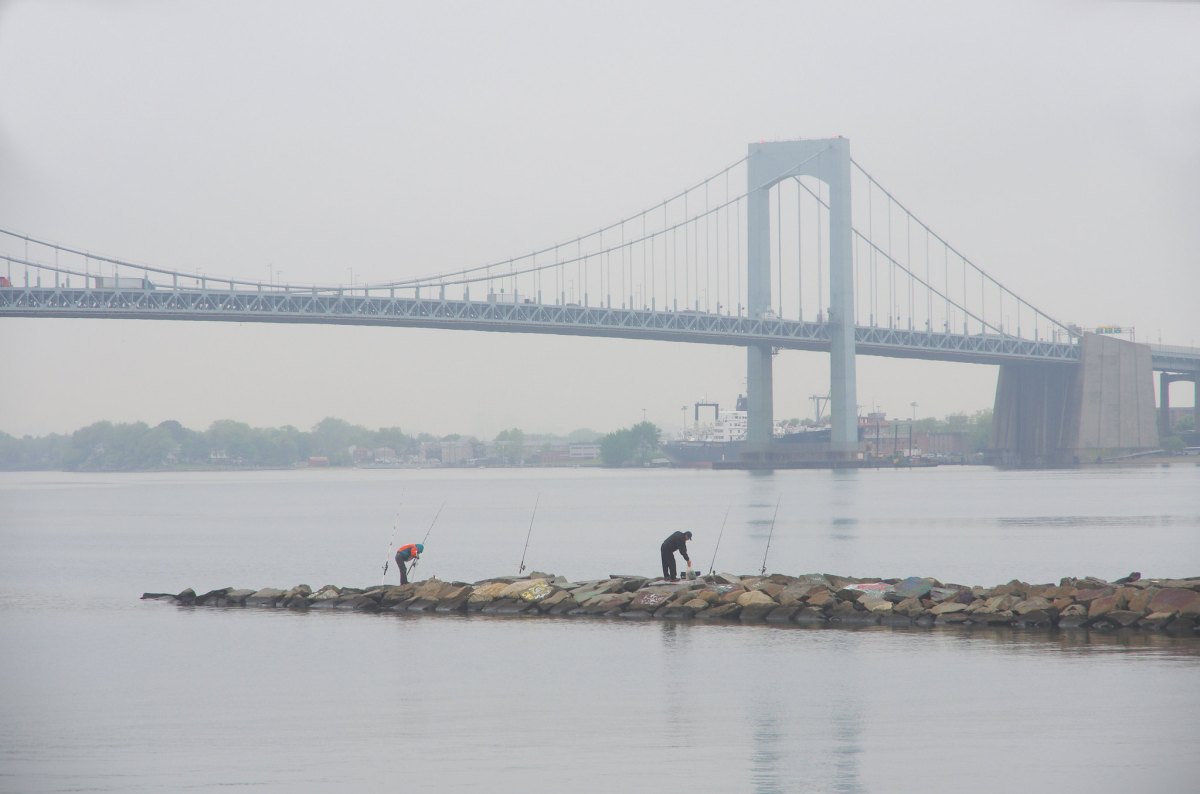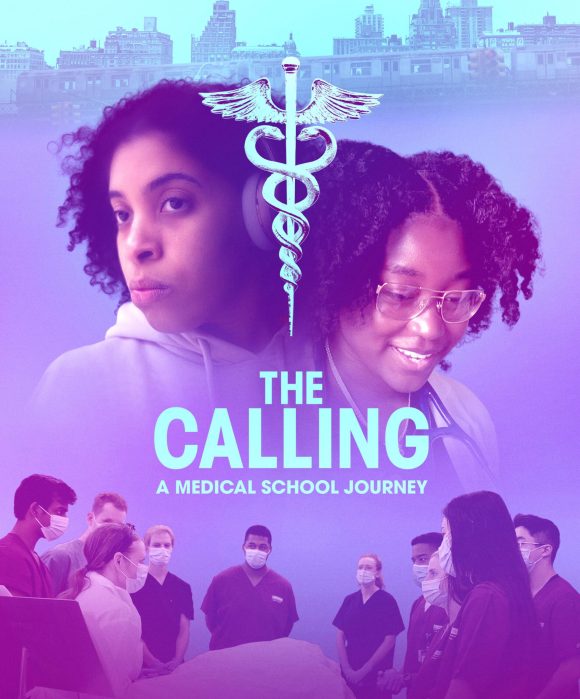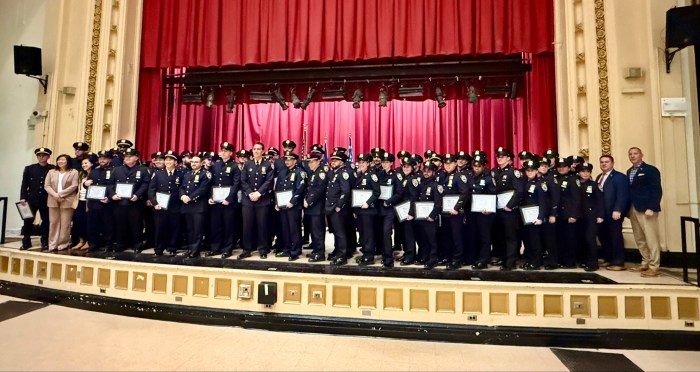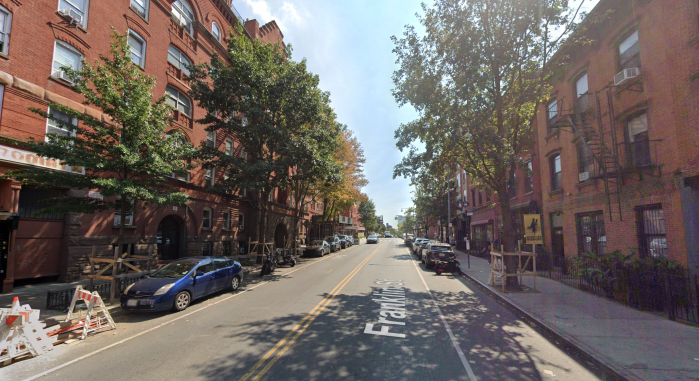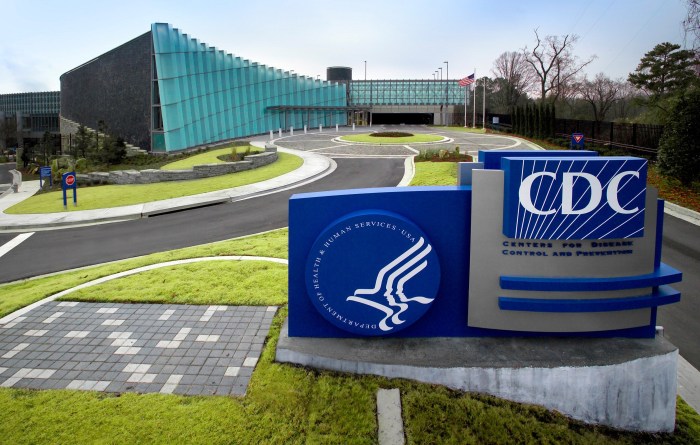New Yorkers let out a collective sigh of relief, and some broke down in tears, upon hearing the news Tuesday afternoon that former Minneapolis police Derek Chauvin being convicted of murdering George Floyd last May.
For many, the outcome provided a measure of justice for Floyd as well as Black communities who see this as only one step of a long walk in the right direction, as two other police killings took place during the course of the Chauvin trial that concluded on April 20.
New Yorkers who reacted to Floyd’s death over the summer, with the trademark phrase “no justice, no peace,” one man told amNewYork Metro that risking one’s health and life for justice is a critical aspect of activism.
“I’m an educator, I work with the DOE and this is something I find very important to teach my students is to be involved and not be a social media activist but to leave your home and to risk even your body if necessary, as we have done during the pandemic, just for what you believe in,” Brian Pew said before making his way to Washington Square Park.
Pew and his daughter, Henrietta, were well aware that racism is alive and well, however.
“While this conviction holds Derek Chauvin accountable for his actions, it does not cure the epidemic of police violence or address the racist systems that perpetuate it,” the Legal Aid Society said in a statement. “Even as this trial was taking place, Daunte Wright and Adam Toledo were killed by police. Police in this nation wield far too much power and control in spaces where they simply do not belong. Their bloated budgets drain resources from services needed in communities and doctrines such as qualified immunity too often shield them from any obligation to pay for the damage they cause. We must fundamentally shift this power and funding to where it is needed the most and repeal qualified immunity laws throughout this country.”
Senator Brian Benjamin fumed with fellow leaders of the black community in Harlem on Thursday over not only the murder of George Floyd, but also the killing of Daunte Wright which happened just ten miles from where Floyd was died with Chauvin’s knee on his neck and while the trial was hearing testimony to boot.
Today, Benjamin said he would stay vigilant.
“The verdict today in the trial of Derek Chauvin for the murder of George Floyd is a victory for our community, but the work is far from over,” Benjamin said. “Justice would be George Floyd living and breathing among us today, and nothing that happened in a courtroom could achieve that. But for him, and for every Black and Brown person who has felt they cannot breathe in the face of police violence, I recommit myself to the mission of repairing the damage that has been done.”
Even Manhattan District Attorney Cy Vance, who, depending on who you ask, is not regarded as a very progressive prosecutor and has been criticized by criminal justice reformists in the push for decarceration. Nonetheless, Vance acknowledged the systemic racism at the heart of the Floyd’s death and the ensuing demonstrations that shook New York City and the nation in the weeks following his death in May 2020.
“With this landmark verdict, our justice system faces an inflection point. Our arrival here owes as much to centuries of systemic racism embedded in the very fabric of our society as it does to Mr. Chauvin’s reprehensible disregard for Mr. Floyd’s life,” Vance said. “Because while this conviction brings a modicum of much-needed justice to the family of George Floyd, it does not, of course, bring him back nor does it deliver justice to the families of the numerous Black men, women, and children whose needless deaths at the hands of police resulted in no criminal accountability – whether in recent years or across every generation of American history.”
For Kesi Foster, Co-Director of Youth Power Project at Make the Road New York, the verdict does little to change the circumstances that ended the lives of Floyd, Wright, 13-year-old Adam Toledo in Chicago or 17-year-old Anthony Thompson Jr. in Knoxville.
“Policing in this country has been designed to control Black and working class communities of color through force and violence. Derek Chauvin was not a rogue officer who failed to follow his training, and rare convictions are not a sign that the system is changing,” Foster said. “In New York City, the families of Eric Garner, Delrawn Small, and Kawaski Trawick are still fighting for Mayor de Blasio to fire all the officers involved in their murders. Status quo reforms, including body-worn cameras, de-escalation training, and ‘neighborhood policing’ have not prevented police killings or protected our communities from police abuse and misconduct. We must move to immediately reduce the power, scope, and budget of the NYPD by divesting from the NYPD’s budget and redirecting those funds for critical social services in communities plagued by police violence.”
Demonstrations in New York City became a sore point between activists and NYPD with instances of police misconduct surfacing later in different investigations regarding their handling of some of the peaceful protests.
With reporting by Dean Moses
